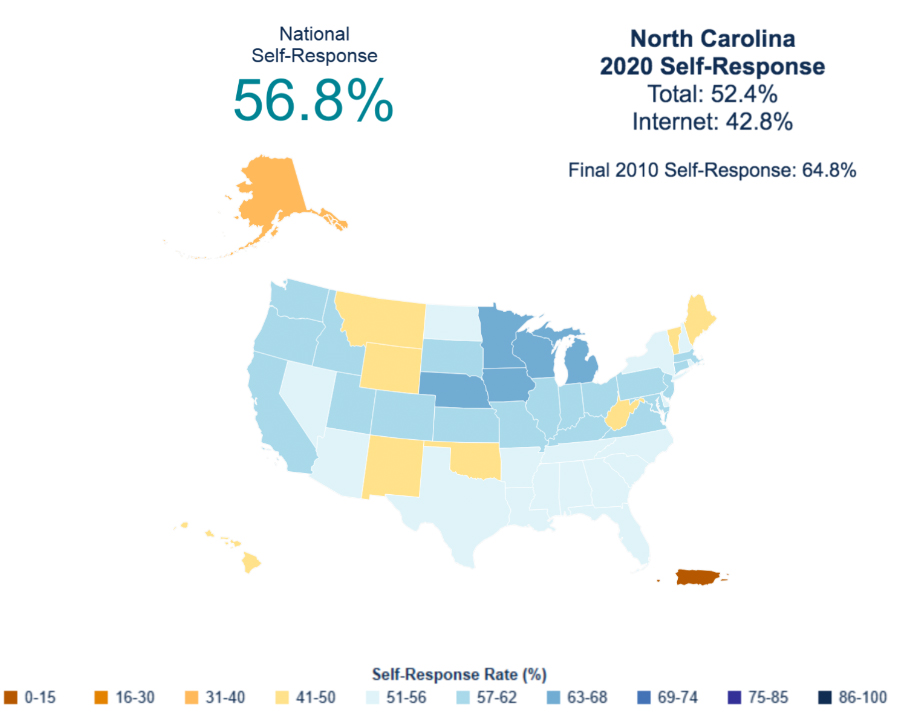Orlando, Fla. (AP) — After shutting down field operations for a month and a half because of the pandemic, the U.S. Census Bureau said Monday that it was restarting some work in the field for the 2020 census on a limited basis.
Starting this week, workers in a small number of cities will begin dropping off 2020 census packets at the front doors of homes that don’t receive their mail there or the mail delivery information for that household can’t be verified, the Census Bureau said.
About 5% of households are counted in this way.
Field operations for the 2020 census were halted in mid-March as governors and mayors issued stay-at-home orders to stop the spread of the new coronavirus. Field operations weren’t expected to resume until the beginning of June, but the decision to restart some of the operations this week on a limited basis was made as some states started allowing businesses to reopen, bureau officials said.
“Based on the assessment of local areas opening back up, or allowing for certain types of businesses to be open, we determined in these locations, it was OK for us to restart operations,” said Michael Cook, chief of the public information office at the U.S. Census Bureau.
Among the locations where the field operations will resume are cities in Alabama, Arkansas, Idaho, Maine, Mississippi, Montana, North Dakota, Oklahoma, Tennessee, Utah, Vermont and West Virginia.
New hires in those locations will resume getting fingerprinted as part of background checks to get applicants moving through the hiring process, said the bureau, which plans to hire up to 500,000 temporary census takers.
The bulk of the field operations in which hundreds of thousands of those census takers knock on the doors of homes where people haven’t yet answered the questionnaire isn’t starting until August, after the pandemic forced a delay from a May start.
The pandemic has forced the Census Bureau to push back its deadline for finishing the 2020 count from the end of July to the end of October. The bureau is also asking Congress for permission to delay deadlines next year for giving census data to the states so they can draw new voting maps.
The 2020 census will help determine how many congressional seats each state gets and the distribution of $1.5 trillion in federal funding. As of Sunday, 56% of households had answered the once-a-decade questionnaire.
Why your 2020 Census response matters
The results of the 2020 Census will help determine how hundreds of billions of dollars in federal funding flow into communities every year for the next decade. That funding shapes many different aspects of every community, no matter the size, no matter the location.
Think of your morning commute: Census results influence highway planning and construction, as well as grants for buses, subways, and other public transit systems.
Or think of your local schools: Census results help determine how money is allocated for the Head Start program and for grants that support teachers and special education.
The list goes on, including programs to support rural areas, to restore wildlife, to prevent child abuse, to prepare for wildfires, and to provide housing assistance for older adults.
Did you know?
Each year, Census data informs federal funding for more than 100 programs, including school lunches, highway construction, and education.
Did you know?
The United States population grew 9.7% between 2000 and 2010, from 281,421,906 to 308,745,538.
Respond to the Census today! https://2020census.gov.








